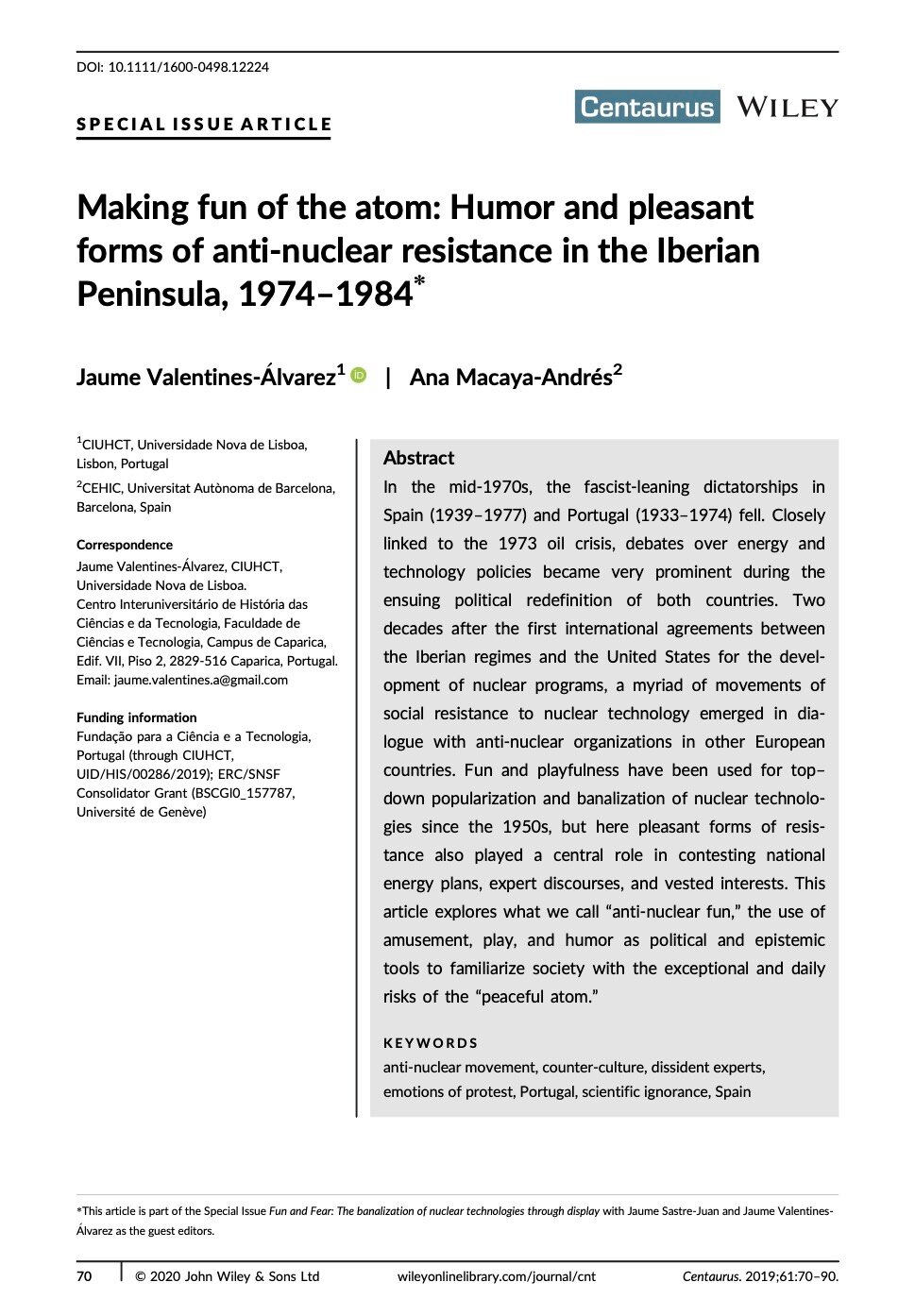Making fun of the atom: Humor and pleasant forms of anti?nuclear resistance in the Iberian Peninsula, 1974ľ1984
- Author(s)
Jaume Valentines?Álvarez e Ana Macaya?Andrés
- Year
- 2020
- Journal
Centaurus, Vol. 61, N. 1-2
- Nr. of Pages
- 70-90

Part of the special issue "Fun and Fear: The banalization of nuclear technologies through display", coordinated by Jaume Valentines-Álvarez and Jaume Sastre-Juan.
Abstract
In the mid?1970s, the fascist?leaning dictatorships in Spain (1939–1977) and Portugal (1933–1974) fell. Closely linked to the 1973 oil crisis, debates over energy and technology policies became very prominent during the ensuing political redefinition of both countries. Two decades after the first international agreements between the Iberian regimes and the United States for the development of nuclear programs, a myriad of movements of social resistance to nuclear technology emerged in dialogue with anti?nuclear organizations in other European countries. Fun and playfulness have been used for top–down popularization and banalization of nuclear technologies since the 1950s, but here pleasant forms of resistance also played a central role in contesting national energy plans, expert discourses, and vested interests. This article explores what we call “anti?nuclear fun,” the use of amusement, play, and humor as political and epistemic tools to familiarize society with the exceptional and daily risks of the “peaceful atom.”